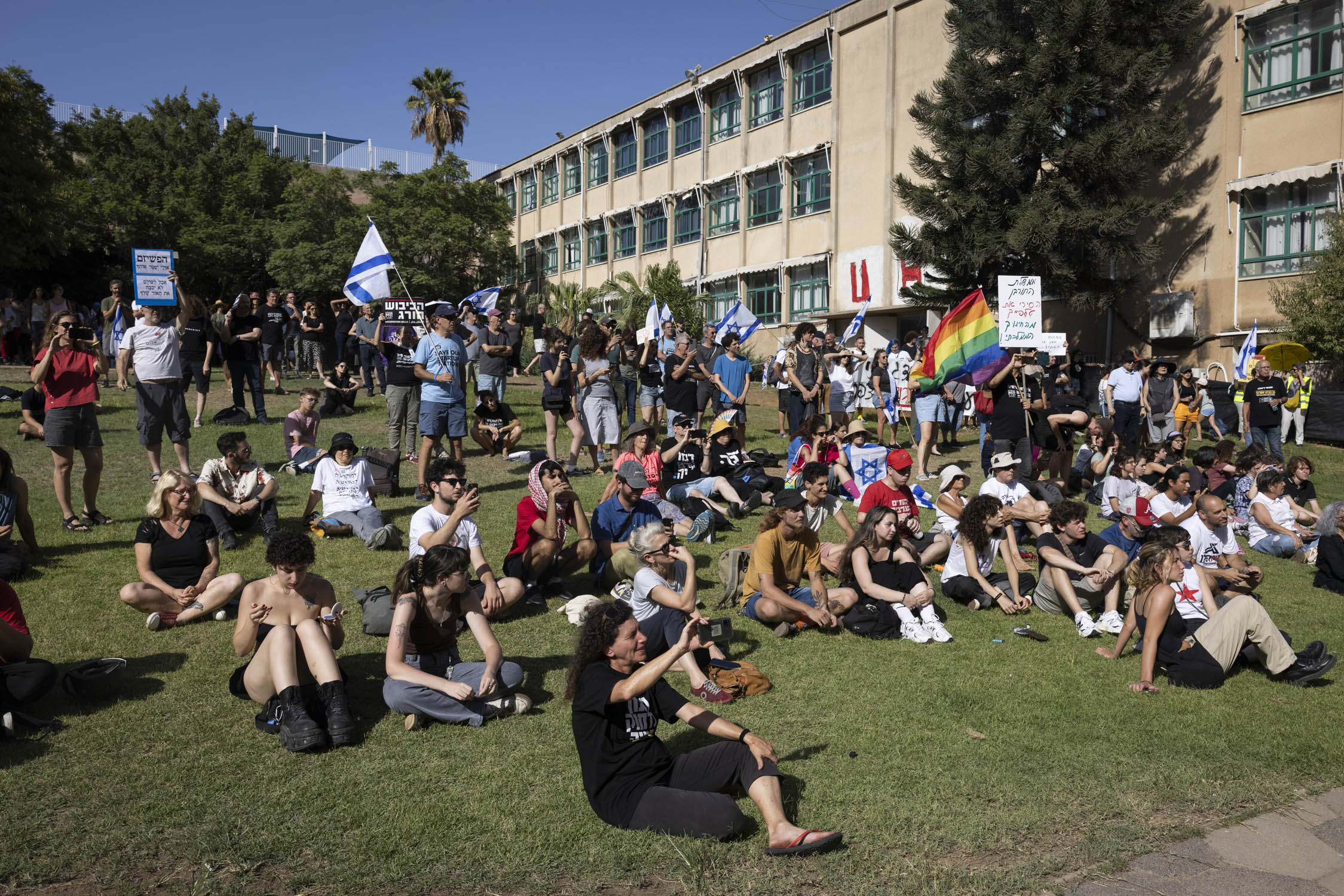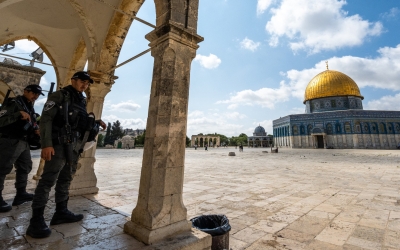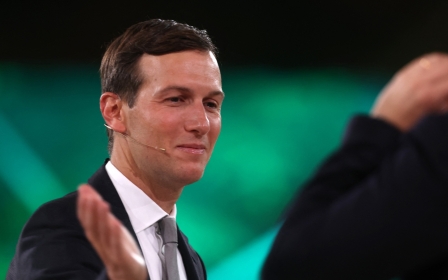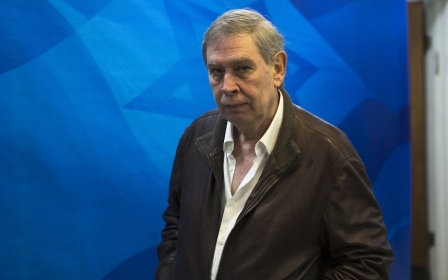Israel: New movement sees young people refusing military service over judicial reforms
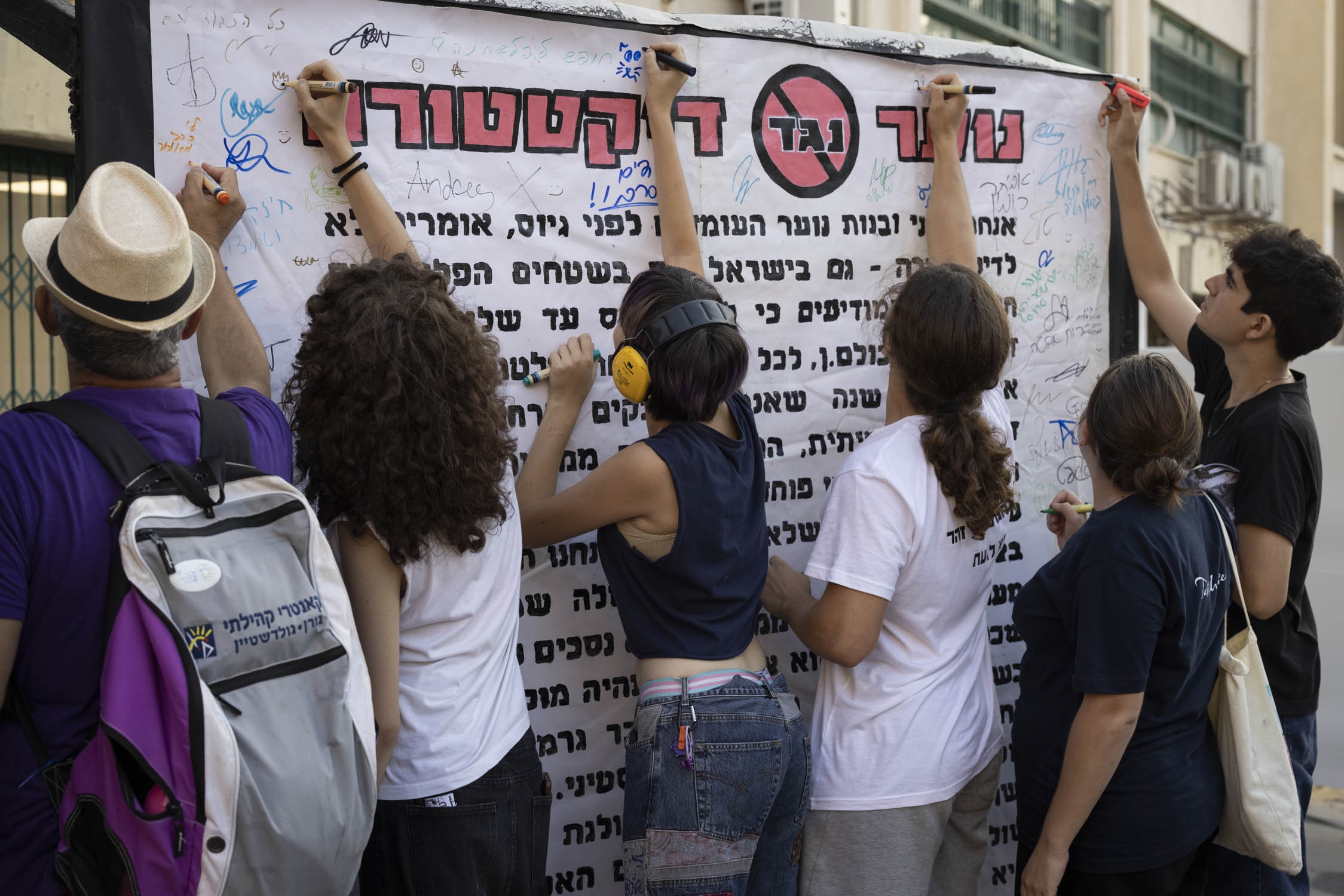
Hundreds of Israeli high school students have publicly declared that they will refuse to serve in the army, in protest at the judicial reforms which have caused widespread unrest and controversy in the country in the past year.
Although it is not the first time Israelis have refused military service in protest, the decision by 230 students to boycott the service is the first organised attempt to use refusal as a specific means of opposing the current government's judicial reforms.
In a statement released on Sunday at the Herzliya Hebrew Gymnasium high school in central Tel Aviv, Youth Against Dictatorship also explicitly tied their cause to opposition to the oppression of the Palestinians.
“As young women and men about to be conscripted into Israeli military service, we say NO to dictatorship in Israel and in the Occupied Palestinian Territories. We hereby declare that we refuse to join the military, until democracy is secured for all who live within the jurisdiction of the Israeli government," read the statement, which attracted widespread attention and controversy in Israel.
The statement said that the "dictatorship that has existed for decades in the Occupied Palestinian Territories is now oozing into Israel proper and is directed against us.
"Violent settlers now control the entire state. These are not recent developments. Undemocratic attitudes and actions are essential to maintaining this regime of occupation and Jewish supremacy. The only thing that has changed is that the mask is now off. Faced with this reality, we say NO!”
In recent months, the practice of refusing has shifted from exclusively small groups on the radical left to the heart of public discourse in Israel.
Hundreds of reservists announced that they would stop volunteering for reserve service in protest at what many claim is an effective "coup" by Prime Minister Benjamin Netanyahu, whose judicial reforms will heavily strengthen parliament against the judiciary.
Former politicians and members of the security establishment have also declared support for the boycott. At a demonstration in Tel Aviv in July, former Shin Bet chief Yuval Diskin said the time had come "to decide on the suspension of volunteering for the reserves until the legislation is completely stopped".
Former Defence Minister and Chief of Staff Moshe Ya'alon has also said of reservists who stop their service that he "would have done the same".
The statement by the 230 youths is the first organised initiative regarding refusal of mandatory service, which applies in Israel to every man or woman at the age of 18, except for ultra-Orthodox Israelis - who are exempt for religious reasons - and Palestinian citizens of Israel, most of whom are not conscripted.
"The statement makes the connection between the judicial overhaul and the occupation. Those promoting the overhaul in the Knesset are Rotman, Ben Gvir and Smotrich, who are settlers," said 16-year-old Ella Greenberg Keidar, referring to a number of far-right legislators who have been pushing the judicial reforms.
She told Middle East Eye that the government's legislation was enabling further construction in the occupied territories and further acts of "ethnic cleansing" against Palestinians.
"Beyond criticising settlers and the settlements, we want to talk about the militarism of society that allows such a thing. In addition, the reform was designed to increase the oppression of LGBT people, women and immigrants," she said.
'I won’t be a soldier of Ben Gvir'
Some of the signatories said they had planned to refuse to serve even before the current far-right government was formed, while others have consolidated their position in recent months.
Tal Mitnick, 17, told MEE that despite his concerns he had planned to keep his head down and enlist in a non-combat role, so that he would be able to get a career after military service.
"When the protests started, I started to be more active and learn from people around me," he said. "I decided to publicly refuse. I understood that these army units are backing up the combat units, giving them the intolerance to invade houses and blackmail Palestinians."
'On the personal level, my attitude has changed - I felt there was an obligation to publicly refuse, in order to present a resistance to the blunt fascist discourse'
- Yuval Dag, activist
He added that the demonstrations had caused a lot of people to wake up and see the connection between the overhaul and the occupation.
"I personally began to connect things, to see the settlers from the West Bank leading the overhaul, and why it is important for them to weaken the Supreme Court, in order to pass racist laws and annex the territories," he explained.
Yuval Dag was the first person to be jailed since the new government was formed and the protests began in January.
Dag, who is 20, had taken the decision to refuse military service already, but decided to go public after the new far-right government was elected.
“On the personal level, my attitude has changed - I felt there was an obligation to publicly refuse, in order to present a resistance to the blunt fascist discourse," he explained to MEE. "In the general public, the slogan of 'I won’t be a soldier of Ben Gvir' became acceptable, even in places where the occupation was not discussed, because now there is a demon on the other side.”
Dag served 64 days in military prison before he was released.
"It was a difficult experience in prison... I hope more will refuse and that it will become more acceptable."
Refusal 'common and accepted'
In July, the Knesset passed a key pillar of the government's judicial reform package, abolishing Israel's "reasonableness standard", eliminating the Supreme Court's ability to block government decisions it deems unreasonable.
Proponents of the plan say it is necessary to restore the balance of power between government branches, while opponents say it will remove checks and balances and undermine the independence of the judicial system.
Attorney Noa Levy, who represents conscientious objectors and advises Youth Against Dictatorship, said that increasing numbers of Israelis taking part in military service had contacted her since the reforms protests began.
Levy told MEE that they said they had lost confidence in the roles assigned to them, and were overwhelmed by doubts following the first mass refusals, prompted by the abolition of the reasonableness standard.
For older "refuseniks", the new wave of Israelis refusing to serve is heartening.
David Zonsheine, 50, is co-founder of the Courage to Refuse group that refused to serve in the West Bank and Gaza during the Second Intifada in the early 2000s.
He was jailed in 2002 after he refused to serve as a reservist in the Palestinian territories.
"More than 20 years ago, we were struggling to return Israel to the morally good place they thought it once was," he told MEE.
"We used our uniform in order to speak to the public - they understand the army itself is the problem, as it produces all the right-wing ideology, even more extreme than Ben Gvir.”
Zonsheine said that while he was still guarding his expectations, it was a positive fact that refusal was now "common and accepted".
"The protests against the overhaul shifted the focus from the army to the regime," he explained. "We stated we won’t serve because of what the army is doing to Palestinians; they state that they won’t serve in an army of a regime because of its actions against Israeli Jews. Now we need to explain the problems beyond that."
Middle East Eye propose une couverture et une analyse indépendantes et incomparables du Moyen-Orient, de l’Afrique du Nord et d’autres régions du monde. Pour en savoir plus sur la reprise de ce contenu et les frais qui s’appliquent, veuillez remplir ce formulaire [en anglais]. Pour en savoir plus sur MEE, cliquez ici [en anglais].


